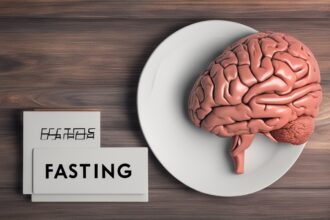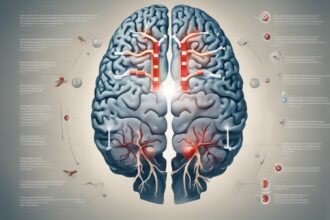Hey there, health enthusiasts! If you’ve been exploring ways to boost your mental clarity, protect your brain as you age, or simply feel sharper day-to-day, fasting might just be the game-changer you’re looking for. While fasting is often associated with weight loss or spiritual practices, its impact on brain health is a fascinating and growing area of research. In this deep dive, we’ll uncover the incredible fasting benefits for your mind, backed by science, and share practical tips to incorporate fasting into your life. Whether you’re a seasoned faster or just curious about how skipping a meal or two could enhance your cognitive function, stick with me as we explore how fasting can be a powerful tool for mental wellness.
What Is Fasting, and How Does It Work?
Let’s start with the basics. Fasting is the voluntary abstinence from food and, in some cases, drink for a specific period. It’s not a new concept—humans have fasted for centuries for religious, cultural, and health reasons. Today, popular fasting methods like intermittent fasting (IF), where you alternate between eating and fasting windows, or prolonged fasting, where you go without food for 24 hours or more, are gaining traction for their health perks. But how does fasting tie into brain health? When you fast, your body shifts gears, entering a state called ketosis, where it burns fat for fuel instead of glucose. This metabolic switch doesn’t just affect your waistline—it has profound effects on your brain, from reducing inflammation to promoting the growth of new brain cells (Mattson et al., 2018). Intrigued? Let’s dig deeper into the specific fasting benefits for your noggin.
Fasting Benefits: Boosting Cognitive Function
Ever notice how your mind feels sharper after skipping a heavy meal? There’s science behind that! Fasting has been shown to enhance cognitive function, including memory, focus, and problem-solving skills. When you fast, your brain increases the production of brain-derived neurotrophic factor (BDNF), a protein that supports the growth and survival of neurons (Mattson, 2015). Think of BDNF as fertilizer for your brain—it helps create new neural connections, which are crucial for learning and memory. Studies on intermittent fasting have found that participants report better mental clarity and improved performance on cognitive tasks (Gudden et al., 2021). So, if you’re looking to stay sharp for that big presentation or just want to remember where you parked your car, the mental benefits of fasting might be worth exploring.
- Enhanced Memory: Fasting boosts BDNF levels, which support memory formation and retention.
- Improved Focus: Ketosis provides a steady energy source for the brain, reducing mental fog.
- Better Mood: Fasting can balance neurotransmitters, potentially easing anxiety and boosting mood.
- Increased Alertness: Without the energy crashes from sugar spikes, your brain stays alert longer.
Neuroprotection: Shielding Your Brain from Aging
As we age, our brains become more vulnerable to neurodegenerative diseases like Alzheimer’s and Parkinson’s. Here’s where fasting shines as a protective ally. Research suggests that fasting triggers autophagy, a cellular “clean-up” process where your body removes damaged cells and regenerates healthier ones (Alirezaei et al., 2010). This process is like hitting the reset button on your brain cells, reducing the buildup of toxic proteins linked to Alzheimer’s. Additionally, fasting reduces oxidative stress and inflammation—two major culprits in brain aging (Longo & Mattson, 2014). By incorporating fasting into your routine, you’re not just reaping short-term fasting benefits; you’re potentially safeguarding your brain for the long haul. Imagine fasting as a shield, helping your mind stay resilient against the wear and tear of time.
Fasting and Mental Health: A Surprising Connection
Beyond cognition and neuroprotection, fasting may also play a role in supporting mental health. Stress, anxiety, and depression are often linked to imbalances in brain chemistry and inflammation. Fasting helps by lowering systemic inflammation and promoting the release of endorphins, those feel-good chemicals that lift your mood (Fond et al., 2013). Some studies even suggest that fasting can mimic the effects of certain antidepressants by influencing serotonin pathways. While it’s not a replacement for professional treatment, adding fasting to a holistic mental health plan could offer complementary benefits. If you’ve been curious about the health advantages of fasting beyond physical wellness, this mental health boost might be the nudge you need to give it a try.
- Reduced Stress: Fasting lowers cortisol levels, helping you feel calmer under pressure.
- Mood Regulation: It may enhance serotonin activity, supporting emotional balance.
- Mindfulness Boost: Fasting often encourages a mindful approach to eating and living.
How to Start Fasting for Brain Health: Practical Tips
Ready to tap into these fasting benefits for your brain? Before you jump in, remember that fasting isn’t a one-size-fits-all solution. It’s important to start slow and listen to your body. If you’re new to fasting, try the 16:8 method of intermittent fasting, where you fast for 16 hours and eat during an 8-hour window. For example, you might eat between noon and 8 p.m., then fast overnight. Hydration is key—drink plenty of water during fasting periods to avoid headaches or fatigue. Also, focus on nutrient-dense foods during your eating windows to fuel your brain with healthy fats, proteins, and antioxidants. If you have medical conditions or take medications, consult your doctor before starting any fasting regimen. Fasting can be powerful, but it’s crucial to do it safely and sustainably.
Potential Risks and How to Avoid Them
While the cognitive benefits of fasting are exciting, it’s not without potential pitfalls. Some people experience irritability, low energy, or difficulty concentrating when they first start fasting—often called the “fasting fog.” This usually passes as your body adapts, but it’s a reminder to ease into fasting gradually. Overdoing it with prolonged fasts or ignoring hunger cues can also lead to nutrient deficiencies or stress on the body, which might counteract the brain health perks (Johnstone, 2015). Balance is key. Stick to moderate fasting protocols, ensure proper nutrition, and don’t hesitate to break your fast if you feel unwell. Remember, the goal is to support your brain, not to push your limits to the breaking point.
So, what’s the takeaway? fasting isn’t just a trend—it’s a science-backed strategy with remarkable benefits for brain health. From sharpening your focus and memory to protecting against age-related decline and even supporting mental well-being, the fasting benefits are hard to ignore. Whether you’re drawn to intermittent fasting or curious about a longer fast, start small, stay hydrated, and prioritize nourishment. Your brain is your most valuable asset, and fasting might just be the tool to keep it thriving for years to come. Have you tried fasting before, or are you inspired to start now? Drop your thoughts or questions below—I’d love to hear from you!
References
- Alirezaei, M., Kemball, C. C., Flynn, C. T., Wood, M. R., Whitton, J. L., & Kiosses, W. B. (2010). Short-term fasting induces profound neuronal autophagy. Autophagy, 6(6), 702–710. https://doi.org/10.4161/auto.6.6.12376
- Fond, G., Macgregor, A., Leboyer, M., & Michalsen, A. (2013). Fasting in mood disorders: Neurobiology and effectiveness. A review of the literature. Psychiatry Research, 209(3), 253–258. https://doi.org/10.1016/j.psychres.2012.12.018
- Gudden, J., Arias-Vasquez, A., & Bloemendaal, M. (2021). The effects of intermittent fasting on brain and cognitive function. Nutrients, 13(9), 3166. https://doi.org/10.3390/nu13093166
- Johnstone, A. (2015). Fasting for weight loss: An effective strategy or latest dieting trend? International Journal of Obesity, 39(5), 727–733. https://doi.org/10.1038/ijo.2014.214
- Longo, V. D., & Mattson, M. P. (2014). Fasting: Molecular mechanisms and clinical applications. Cell Metabolism, 19(2), 181–192. https://doi.org/10.1016/j.cmet.2013.12.008
- Mattson, M. P., Moehl, K., Ghena, N., Schmaedick, M., & Cheng, A. (2018). Intermittent metabolic switching, neuroplasticity and brain health. Nature Reviews Neuroscience, 19(2), 63–80. https://doi.org/10.1038/nrn.2017.156






